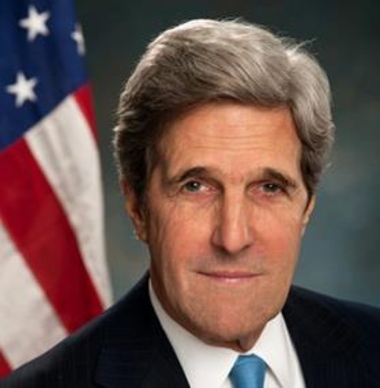Secretary of State John Kerry on World AIDS Day

On World AIDS Day, we come together as a global community to honor the many lives we have lost, and to reaffirm our support for the millions of individuals and families who are still living with and affected by HIV/AIDS around the world.
On this day, we also gain strength by celebrating the important strides that we have taken over the past year, and recommit ourselves to the work still ahead to achieve an AIDS-free generation.
This year marks an extraordinary decade of progress. Ten years ago, when the U.S. President’s Emergency Plan for AIDS Relief (PEPFAR) was launched by President Bush and with strong bipartisan support of the U.S. Congress, an AIDS diagnosis was a virtual death sentence in much of Africa. The epidemic was threatening the very foundation of societies – creating millions of orphans, stalling economic development, and leaving countries stuck in poverty.
Today, landmark scientific advances, coupled with success in implementing effective programs have put an AIDS-free generation within sight. In sub-Saharan Africa, where the epidemic has hit the hardest, new HIV infections are down by nearly 40 percent since 2001, and AIDS-related mortality has declined by nearly one-third since 2005. This progress is thanks in large part to the unique efforts of and partnership between PEPFAR, the Global Fund to Fight AIDS, Tuberculosis and Malaria, and host countries.
The United States is proud of its longstanding leadership role in these efforts. Through research, funding, direct support for HIV services, we have always led by example in this fight, and asked others to join us.
This June, in marking PEPFAR’s tenth anniversary, I was pleased to announce the one-millionth baby born HIV-free due to PEPFAR-supported prevention of mother-to-child transmission programs. I also was greatly encouraged to report that 13 countries (including 11 in sub-Saharan Africa) have now reached the programmatic “tipping point” in their AIDS epidemic – the point where the annual increase in adults on treatment is greater than the number of annual new adult HIV infections.
And in September, I was honored to host a session with top African leaders and senior global health stakeholders to launch the innovative concept of PEPFAR Country Health Partnerships with South Africa, Rwanda, and Namibia, which will further our efforts to advance country ownership and strengthen sustainability. These successes were further amplified by the U.S. Congress’ bi-partisan and bi-cameral effort in the passage of the PEPFAR Stewardship and Oversight Act on November 19.
The Act reaffirms the United States’ continued commitment to this historic health program and to the fight against global AIDS.
Achieving an AIDS-free generation is a shared responsibility. Partnerships with host government, civil society, the faith community, the private sector, and multilateral organizations are vital to a robust and sustained global AIDS response.
On this World AIDS Day, as we reflect on the extraordinary progress we have made together, it is important to remember that our work is far from finished.
With a sustained focus on strengthened results and shared responsibility, I know that we can get there.
The Gayly – December 1, 2013 @ 8:45pm





